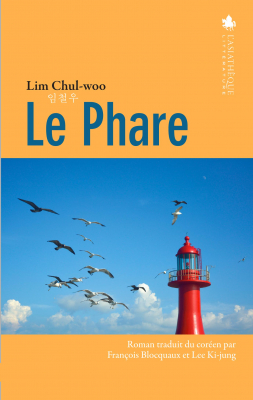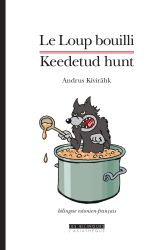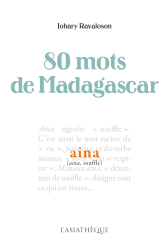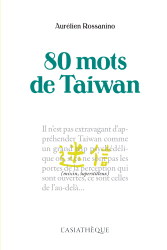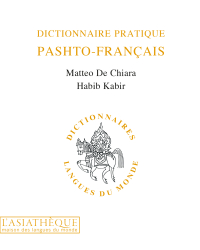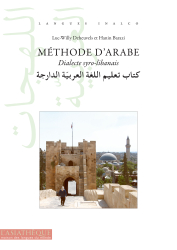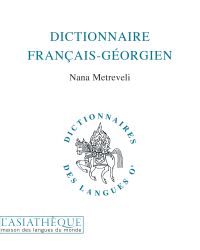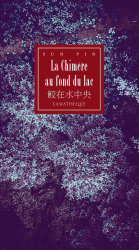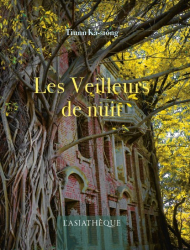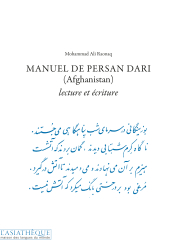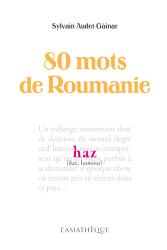Details
Format: Paperback
ISBN: 9782360570744
Collection: Monde coréen
13.5 x 21.4 cm
Weight: 300 gr
Pages: 304
First publication: 16/03/2016
Last printing: 03/2016
After telling us about his rough childhood, but delighted with his grandparents in his bestseller I want to go to this island (L'Asiathèque, 2013), Lim Chul-woo evokes his childhood, both hard and happy, with his grandparents on the island of Wando, South Korea, then tells of his adolescence and his difficult move to a poor suburb of Kwanju, on the mainland. His mother struggling to make them live, he and his two sisters, one of whom is mentally disabled. In The lighthouse, Lim Chul-woo plunges us into the intimacy of underprivileged Koreans, on the fringes of the city, without glamour or misery.
PRESS REVIEW
Le Phare
"... We can see how life was harsh in the" deep "Korea of the 1960s, we taste the picturesque people keeping the memory of a country that was long isolated ..."
" ... Lim Chul-woo already evoked a harsh and joyful childhood in Je veux aller dans cette île (L’Asiathèque, 2013). Digging into the same vein, he offers through this painting of an adolescence a poignant lesson in humanity and humility. ..."
A korean teenager
"... Cursed childhood and yet the autobiographical account shines with all the beneficial encounters made by the young boy. In the heart of destitution, these souls, both pitiful and sublime, stand firm ... ”
« ... quelque soit notre désespoir : "nous avons le devoir d'être comme un phare aux yeux de ceux qui sont en perdition". Lim Chul woo évoquait déjà une enfance âpre et joyeuse dans Je veux aller dans cette île. Creusant la même veine, il offre une poignante leçon d'humanité et d'humilité ... »
Four Korean masters
"... Like a parenthesis in the political work of this committed author, the logbook of his young hero, landed with mother and sisters in a" hamlet of foutraques "(...). A beautiful tribute to all the courageous mothers of the 1960s ... "
30 Korean authors in Paris
“... He made the democratization of the country an inspiring power. Considered a subversive author, he testifies to the violence of history and to confidence in human beings ... "
CONTRIBUTORS' BIOGRAPHIES
Lim Chul-woo
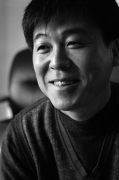
Lim Chul-woo, born in 1954, publishes his first short story, "Dog Thief" in 1981 and quickly became known thanks to numerous works (including "My Father's Land", published in French under the title Terre des ancêtres, Paris, Imago, 2012). The Island won him the votes of the Korean public and a film adaptation ("To the Starry Island") of which he was the co-writer with the director Lee Chang-dong and the director Park Kwang-su. We can see Lim Chul-woo in the documentary series created for Arte by Jacques Debs, "La Corée du Sud, le pays aux multiples miracles", aired from November 2 to 6, 2015 (episode devoted to the islands: Wando and Jeju).
TABLE OF CONTENTS
Prologue (Prologue)
La famille « Bonshommes-de-neige » (The Snowman Family)
La ville et ses illusions (The city and its illusions)
La masure au toit de tuiles (The house with the tile roof)
Le hameau des foutraques (The hamlet of the "foutraques)
La toile d’araignée (The spider's web)
Yang-shim (Yang-shim)
Ma mère et sa machine à coudre (My mother and her sewing machine)
Le père ou son ombre ? (The father or his shadow?)
Le rêve du manchot (The dream of the penguin)
Le coiffeur du salon le Nouveau Monde (The hairdresser of the New World salon)
Le vieux pupitre (The old desk)
Le début de l’errance (The beginning of the wandering)
L’histoire de l’étoile (The Story of the Star)
Les pépins de raisin et l’amour, I (Grape Seeds and Love, I)
Les pépins de raisin et l’amour, II (Grape Seeds and Love, II)
La maison de l’oranger (The House of the Orange Tree)
La remise aux palanquins funéraires (The funeral palanquin shed)
L’étoile du matin (the morning star)
La masure au bord des rails, I (The hovel by the tracks, I)
La masure au bord des rails, II (The hovel by the railroad tracks, II)
Hiver (Winter)
Gwi-ok, « le Corbeau » (Gwi-ok, "the Raven")
Devant la tombe (In front of the grave)
Oh-mok, quelle idiote ! (Oh-mok, what a fool!)
Pluie de printemps (Spring rain)
Scène finale (Final scene)
Le professeur l’Anchois (Professor Anchovy)
Devant cette maison-là (In front of that house)
Chambre avec harmonium (Room with harmonium)
Nuit au clair de lune (Night in the moonlight)
Le ginkgo (The ginkgo)
L’étincelle (The spark)
Adieu (Farewell)
Quinze ans plus tard (Fifteen years later)
Épilogue (Epilogue)
De l’auteur au lecteur (A Note from the author)
